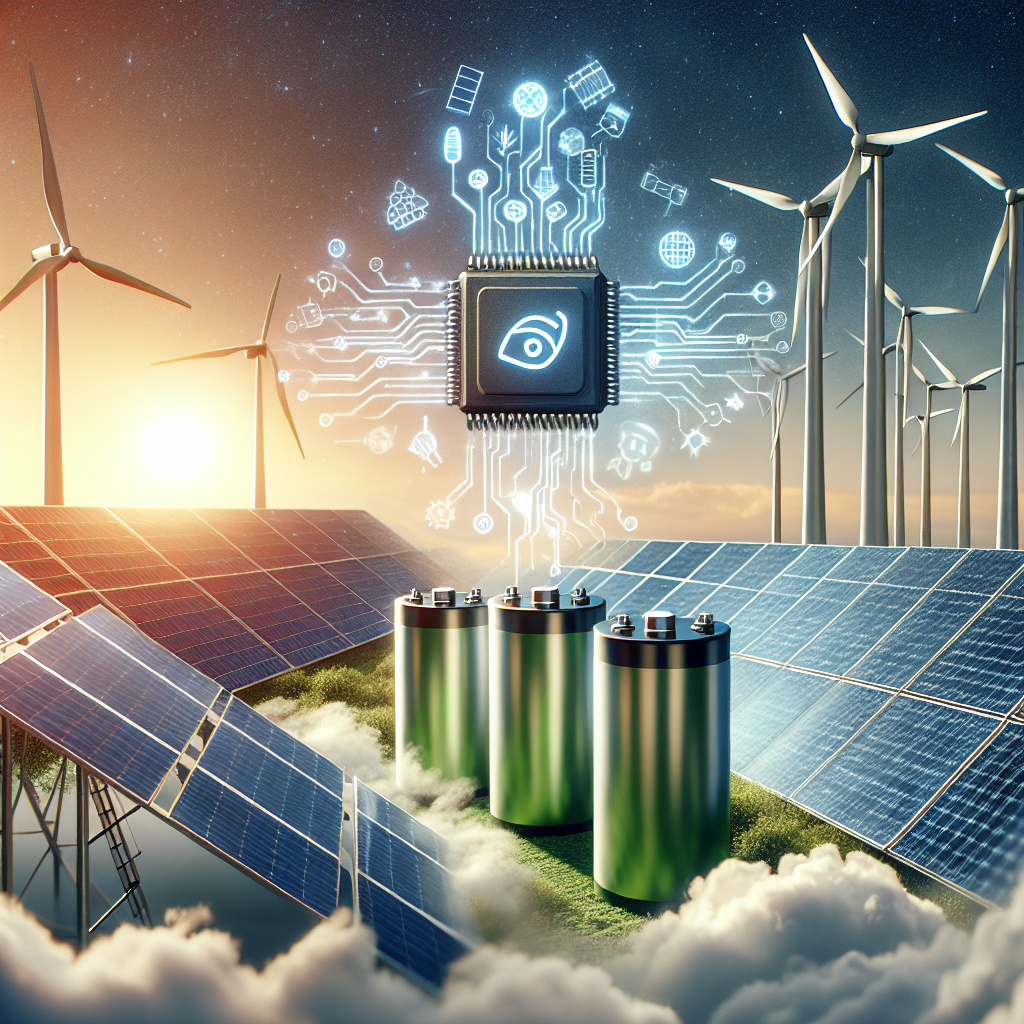As the world continues to shift towards renewable energy sources to combat climate change and reduce dependence on fossil fuels, one of the biggest challenges is how to efficiently store and distribute this energy. Renewable energy sources such as solar and wind are intermittent and decentralized, making it difficult to rely on them as consistent sources of power. This is where artificial intelligence (AI) technology comes in, offering innovative solutions to improve renewable energy storage and make it more reliable and accessible.
AI technology has the potential to revolutionize the way we store and manage renewable energy. By leveraging advanced algorithms and machine learning capabilities, AI can optimize energy storage systems, predict energy production, and improve overall grid efficiency. This can help overcome the variability and unpredictability of renewable energy sources, making them more viable alternatives to traditional fossil fuels.
One of the key ways AI technology is improving renewable energy storage is through the development of smart grid systems. These systems use AI algorithms to analyze data from various sources, such as weather forecasts, energy consumption patterns, and grid performance, to optimize energy flow and storage. By predicting energy demand and production in real-time, smart grids can better balance supply and demand, reducing waste and improving overall grid stability.
Another way AI is improving renewable energy storage is through the development of advanced energy storage technologies. For example, AI can optimize the performance of batteries by managing charging and discharging cycles more efficiently, extending their lifespan and improving their energy storage capacity. AI can also help integrate different energy storage technologies, such as lithium-ion batteries, pumped hydro storage, and flywheels, to create hybrid energy storage systems that can provide more reliable and cost-effective energy storage solutions.
Furthermore, AI technology can improve the efficiency of renewable energy production by optimizing the placement and operation of solar panels, wind turbines, and other renewable energy assets. By analyzing data on factors such as weather patterns, energy demand, and grid constraints, AI algorithms can determine the best locations for renewable energy installations and adjust their operation to maximize energy production. This can help increase the overall efficiency and reliability of renewable energy systems, making them more competitive with traditional energy sources.
In addition to improving energy storage and production, AI technology can also help reduce energy consumption and waste through demand-side management. By analyzing data on energy consumption patterns and user behavior, AI algorithms can optimize energy usage in buildings, factories, and other facilities, reducing peak demand and saving energy costs. This can help create a more sustainable and efficient energy system, while also reducing greenhouse gas emissions and environmental impact.
Overall, AI technology has the potential to transform the renewable energy sector and accelerate the transition to a clean and sustainable energy future. By leveraging advanced algorithms and machine learning capabilities, AI can improve the efficiency, reliability, and affordability of renewable energy storage and production, making it more accessible to a wider range of users. This can help reduce dependence on fossil fuels, mitigate climate change, and create a more resilient and decentralized energy system.
FAQs:
Q: How does AI technology improve renewable energy storage?
A: AI technology improves renewable energy storage by optimizing energy storage systems, predicting energy production, and managing energy flow in smart grid systems.
Q: What are some examples of AI applications in renewable energy storage?
A: Some examples of AI applications in renewable energy storage include optimizing battery performance, integrating different energy storage technologies, and improving the efficiency of renewable energy production.
Q: How can AI technology help reduce energy consumption and waste?
A: AI technology can help reduce energy consumption and waste by optimizing energy usage in buildings, factories, and other facilities through demand-side management.
Q: What are the benefits of using AI technology in renewable energy storage?
A: The benefits of using AI technology in renewable energy storage include improved efficiency, reliability, and affordability of energy storage systems, as well as reduced environmental impact and greenhouse gas emissions.

